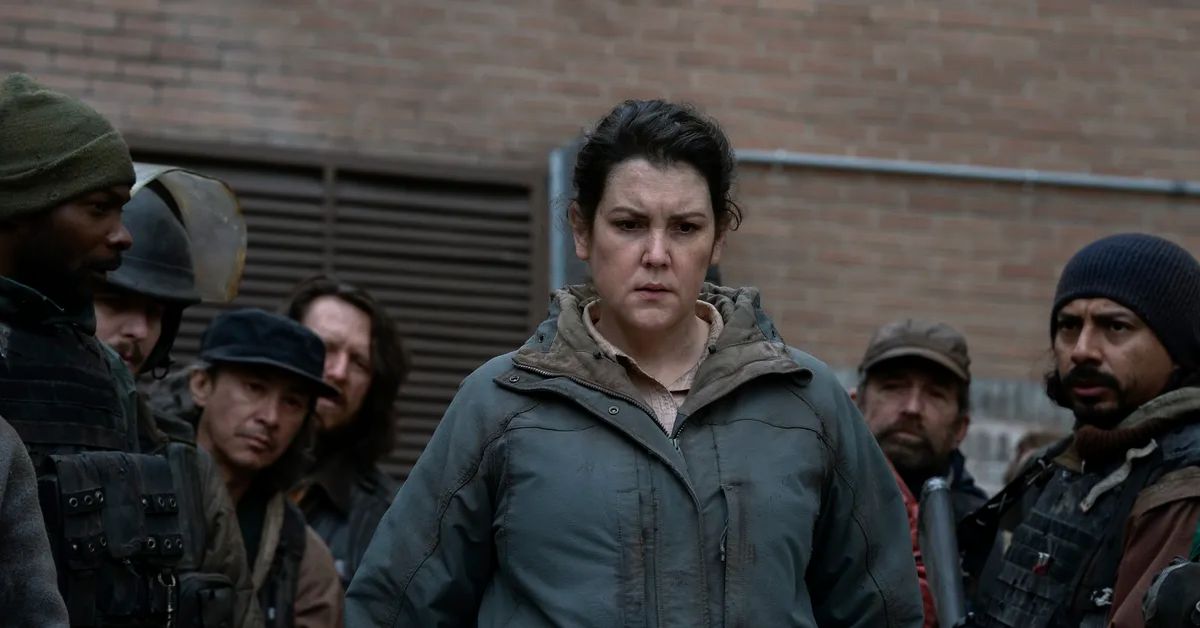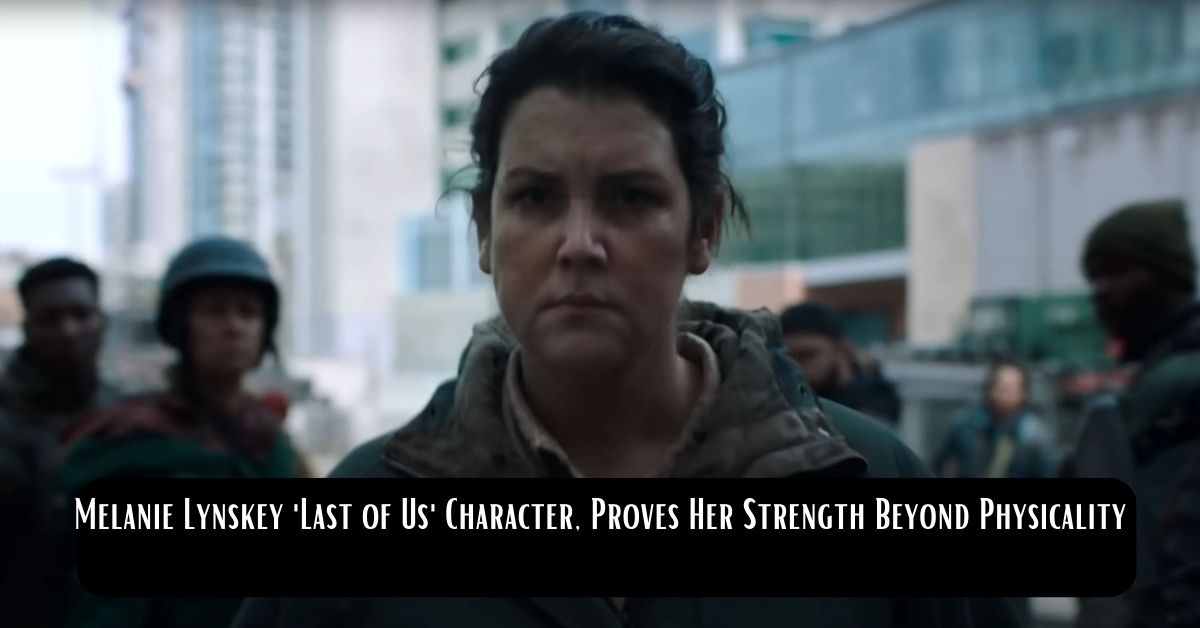Tom Cruise, the 60-year-old, 5′ 7″ actor with numerous action movie roles under his belt and more in development, has never experienced a week like Melanie Lynskey recently did.
While Cruise and other male actors of his caliber are rarely asked to defend their casting in action roles despite what some might view as physical limitations, Lynskey provided an example of how strength transcends physical appearance when she was forced to defend her casting in HBO’s “The Last of Us” as revolutionary movement leader Kathleen Coghlan.
She also did it for everyone who is viewed as weak because of their appearance rather than their inner power, which comes from within. She didn’t simply do it for other ladies. See what kind of insight a life lived without living entirely in your thoughts may produce?
Since Lynskey was chosen for the series adaptation of the well-known video game of the same name, fanboys, and other like-minded critics have voiced their opinions on Reddit and elsewhere.
However, the biggest and most surprisingly unnecessary criticism came from model Adrianne Curry, who commented on a photo of Lynskey on Wednesday and claimed that the actor’s physique made her unsuitable for the role.

“Her appearance suggests a luxurious lifestyle, not a post-apocalyptic tyrant. When you need Linda Hamilton, where is she?” Curry commented on the image, which was from an unrelated cover shot for an InStyle magazine.
In an initial response that led to a threaded take-down of the “bless your heart” variety, Lynskey retweeted Curry’s post and addressed her directly saying, “I am supposed to be SMART, ma’am. I don’t need to be muscly. That’s what henchmen are for.”
Curry removed Lynskey’s account when a large number of people, including her husband Jason Ritter, came to her aid.
It’s clear that Linda Hamilton, who undoubtedly had to defend her casting in the “Terminator” role mentioned by Curry, would agree with Lynskey’s assertion that body shaming is a small-minded action that says far more about the shame-er than the shame-ee.
Lynskey, who has battled body-shaming since her debut role in “Heavenly Creatures” at the age of 16, made many good points in her response to Curry’s comment
“Other than the moments after the action is called, when you feel like you’re actually in someone else’s body, the most exciting part of my job is subverting expectations,” Lynskey said.
The idea that in a fungus-zombie post-apocalyptic hellscape, the individual with the biggest muscle should be the one to take control The situation that Lynskey’s heroine in “The Last of Us” finds herself in is almost as absurd as the notion that men are better problem-solvers than women.
Have you ever used Instacart and had a male appear as your shopper? Even in the best of conditions, good luck getting that vanilla almond milk; let alone while he’s being pursued by zombies.
In “The Last of Us,” Season 4, Episode 4, “Please Hold to My Hand,” Lynskey initially appears as Kathleen Coghlan, who has revolted against the Federal Disaster Response Agency (FEDRA) after one of their employees killed her brother.
Coghlan, who is taking over for her brother, must rely on her cunning and the strength of devoted bandits who look up to her as a leader.
She establishes her command base in what was once the FEDRA compound and directs her team to kill anyone who tries to infiltrate their headquarters or who she believes is withholding information while concentrating on finding a man named Henry, whom she believes to be a traitor responsible for her brother’s death.
“Other than getting to work with creative geniuses who I respect and admire (Neil & Craig) the thing that excited me most about doing ‘The Last of Us’ is that my casting suggested the possibility of a future in which people start listening to the person with the best ideas,” Lynskey said on Twitter in defense of her role.
“Not the coolest or the toughest person. The organizer. The person who knows where everything is. The person who is doing the planning. The person who can multitask. The decisive one.”
The actress continues in a later tweet by saying that she purposefully made the character”feminine and soft-voiced” because those are characteristics so often categorized as weak and, in her own words, “f**k that.”
When viewing Lynskey in this part, I’m reminded of Clarice Starling, who was portrayed by Jodie Foster in “The Silence of the Lambs.”
Starling also has a delicate femininity that offers a captivating contrast to the male-dominated area she found herself excelling in as a trainee in the FBI put in front of more seasoned male agents to woo the cannibalistic killer Hannibal Lecter.
You can also find other trending articles here:
- What Happened to Tess at the End of The Last of Us Episode 2?
- The Long-Awaited Last of Us Episode 5 Release Date is Finally Here!
Lecter observes Starling through the openings of his bulletproof holding cage and gives her a whiff before telling her, “You use Evian skin cream, and occasionally you wear L’Air du Temps. But not today.”
The clever serial murderer she was interviewing ended up respecting her more than her superiors, despite her decision to tone down her femininity. As a result, she realized that she didn’t need to.
Another illustration of power originating from inside as something gained rather than something to be worked up to.
Lynskey is just one of a large cast of characters in “The Last of Us” who provide representation for persons with disabilities, LGBTQ people, and people of all ethnicities.
Craig Mazin made otherwise casting choices as well. This enables viewers to more thoroughly reflect a dystopian vision of a life that includes everyone, not just supermodels, as they are in the horrific events depicted onscreen.
There were several actresses Mazin might have cast in the role of Kathleen Coghlan, but he picked the correct one. The one who reminded folks like Adrianne Curry that frequently the person who does you in is the one you don’t see coming was the one we needed to do the job.
